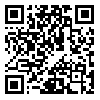Volume 8, Issue 20 (2005)
CLR 2005, 8(20): 49-72 |
Back to browse issues page
Download citation:
BibTeX | RIS | EndNote | Medlars | ProCite | Reference Manager | RefWorks
Send citation to:



BibTeX | RIS | EndNote | Medlars | ProCite | Reference Manager | RefWorks
Send citation to:
Biazar Shirazi A. Forensic Medicine In Islamic Law and Jurisprudence. CLR 2005; 8 (20) :49-72
URL: http://clr.modares.ac.ir/article-20-11651-en.html
URL: http://clr.modares.ac.ir/article-20-11651-en.html
. Alzahra (s) University &
Head of University of Islamic schools of tought
Tehran,Iran
Abstract: (17048 Views)
Today in various countries around the world, forensic modicine with its laboratories. Plays an important role in judicial and justice issues. Forensic medicine is a set of procedures which specialist physicians take in order to discover and determine the crime and the trace of the accused and to prove or disprove the claims of the claimant or defendant.
In judicial verdicts, Islamic law and jurisprudence in order to distinguish many crimes and determine damages to body parts the case is referred to a just specialist physician.
What is the position of forensic medicine in Islamic law and jurisprudence and what is its precedence in Islamic law, jurisprudence, Hesbeh issues and Islamic medicine? How much is its validity from the viewpoint of jurisprudents? How valid are the depiction methods and tools of forensic medicine and in what issues of Islamic law and jurisprudence has these issues been referred to physicians? Does issuing of verdicts based on evidences and documentation have a legitimate ground in Islamic law and jurisprudence? And could forensic medicine procedures such as finger printing and blood tests used for this? This article clarifies these issues.
Keywords: Forensic Medicine, Legitimate Medicine
Received: 2003/07/26 | Accepted: 2004/06/9 | Published: 2005/02/19
| Rights and permissions | |
 |
This work is licensed under a Creative Commons Attribution-NonCommercial 4.0 International License. |







